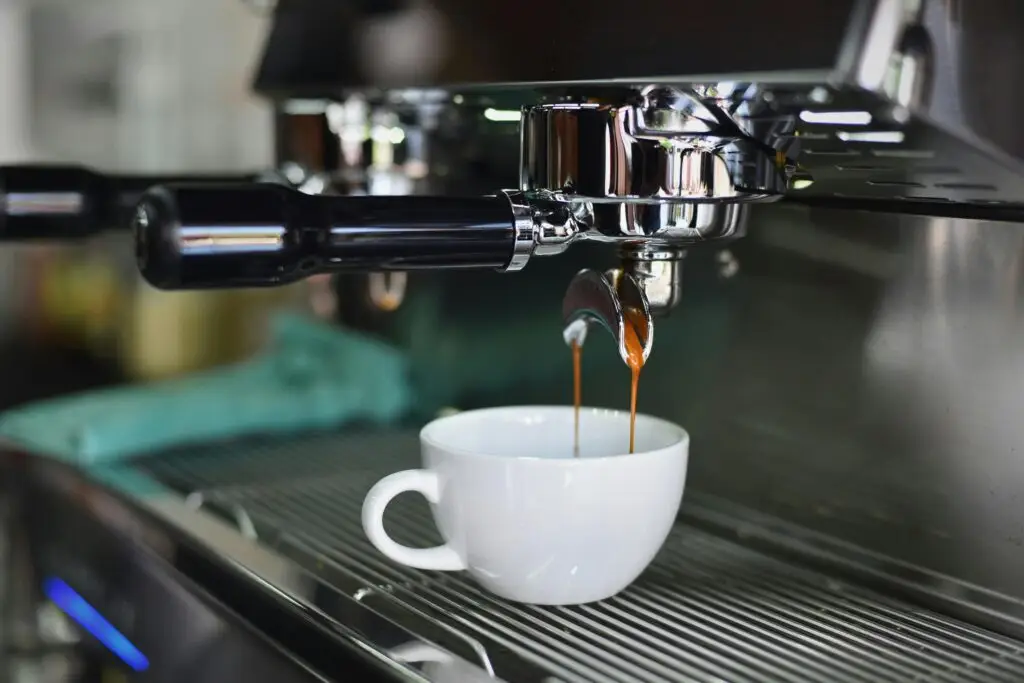The landscape of coffee service has undergone a remarkable transformation over the past decade. What began as a simple convenience at service stations has evolved into a sophisticated self-serve restaurant model that’s reshaping how establishments approach beverage service.
From humble beginnings with basic automatic machines at petrol stations to their prominent placement in artisan roasteries like Blank Street, this evolution tells a compelling story of innovation, efficiency, and changing consumer expectations.

The Journey from Service Stations to Artisan Roasteries
The rise of automatic coffee machines represents one of the most significant shifts in foodservice technology. Initially, these machines were relegated to service stations where convenience trumped quality. However, as technology advanced and consumer palates became more sophisticated, we witnessed their migration into grab-and-go establishments such as Greggs.
This progression reflects a fundamental change in how businesses view self-service payment kiosks and automated beverage systems. They are no longer seen as a cost-cutting measure that compromises the quality of the coffee, instead they’re seen as tools to produce premium coffee whilst enhancing both operational efficiency and customer experience.
Unmatched Consistency Through Self-Serve Technology
One of the most significant advantages of automatic coffee machines is their ability to deliver consistent results with every cup. Unlike manual preparation, which can vary based on the barista skills, automated systems ensure that every customer receives the same high-quality beverage every time.
This consistency is particularly crucial during peak-hour service when traditional coffee preparation methods can become rushed and inconsistent. Automatic machines maintain their precision whether they’re serving the first customer of the day or the hundredth, ensuring brand reputation remains intact across all service periods.
Enhanced Efficiency and Order Accuracy
The integration of self-serve systems including kiosks, tablets, and mobile devices has revolutionised order processing. Customers can now customise their beverages with precision, selecting their favourite drink without the risk of miscommunication. This significantly improves order accuracy, reducing waste from incorrect orders and eliminating the time and labour spent on remakes.
The result is a smoother operation that serves more customers in less time while maintaining quality standards. A study by McKinsey states that restaurants that have implemented self-serve coffee machines have seen a 30% increase in productivity and a significant reduction in labour costs.
Strategic Labour Costs Reduction
Perhaps the most compelling business case for automatic coffee machines lies in their impact on labour costs. By automating the brewing process, restaurants can reallocate staff to other value-added activities such as food preparation, customer service, or cleaning. This doesn’t necessarily mean fewer jobs, it means more strategic deployment of human resources.
During busy periods, this regained time becomes even more valuable. A single automatic machine can handle the coffee orders that might otherwise require multiple baristas, allowing establishments to maintain service levels without proportional increases in staffing costs.
Elevated Customer Experience and Contactless Convenience
Modern consumers increasingly value contactless convenience and self-service options. According to the Kiosk Market Research 2024 report, 66% of consumers prefer self-service over interacting with an employee because it is faster and less stressful. Automatic coffee machines cater to this preference by offering customers control over their coffee experience. They can take their time making selections, customise their orders precisely, and complete transactions at their own pace.
This self-directed approach is particularly appealing to busy professionals who appreciate the speed and efficiency of self-service payment kiosks integrated with premium coffee machines. The technology also supports loyalty programs and mobile payments, further enhancing the customer journey.
Restaurant Industry Applications and Benefits
For restaurant operators, the adoption of automatic coffee machines represents a strategic investment in multiple areas:
Quality Assurance: Automatic coffee machines eliminate the variability that comes with human preparation, ensuring that coffee quality remains consistent regardless of staff turnover or training levels.
Space Optimisation: Modern automatic machines have a smaller footprint than traditional espresso setups while offering greater variety and customisation options.
Looking Forward: The Future of Self-Service Solutions
The evolution from service station convenience to artisan quality represents more than just technological advancement – it signals a fundamental shift in how we think about service delivery in the restaurant industry. As self-serve technology continues to improve and consumer acceptance grows, we can expect to see even greater integration of these systems across various dining formats.
The success of establishments like Blank Street demonstrates that automation and artisanal quality are not mutually exclusive. Instead, they can work together to create experiences that are both premium and efficient, satisfying the modern consumer’s desire for quality, convenience, and control.
Where Automation Meets Artisanal
The rise of automatic coffee machines from service stations to artisan roasteries illustrates a broader trend toward intelligent automation in foodservice. By embracing self-service solutions that prioritise consistency, efficiency, and customer control, restaurants can position themselves for success in an increasingly competitive marketplace. The key lies in viewing self-service coffee machines as a tool to enhance operational capabilities, rather than viewing it as a replacement for the human touch.
Emilia Jacobs is the Innovation Lead at Connect Vending, bringing together communities and making a difference, through unattended retail solutions.